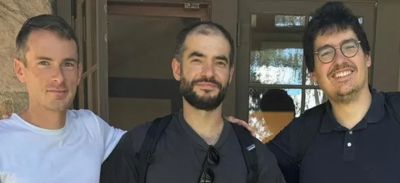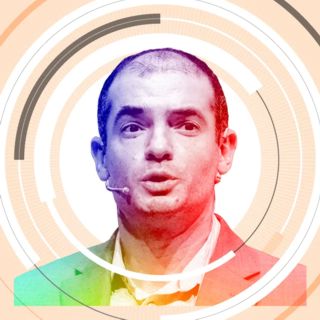| Ilya Sutskever Raise $1 Billion To Research Safe AI |
| Written by Sue Gee |
| Wednesday, 11 September 2024 |
|
Safe Superintelligence, the company co-founded by Ilya Sutskever after he resigned from Open AI, has raised $1billion in cash funding, despite the fact that it intends not to release any products for at least 2 years. Photo Credit: Reuters Safe Superintelligence (SSI) was founded in June 2024 by Ilya Sutskever together with Daniel Levy (left) another former Open AI researcher and Daniel Gross (right), who having been one of the youngest founders ever accepted into the Y Combinator accelerator program, served as a partner there and became chief of Apple's AI efforts. SSI has the very specific aim expressed in the company name - that of developing a "safe superintelligence" by means of "revolutionary engineering and scientific breakthroughs" and without the distraction of "management overhead or product cycles." If any team can make this happen, having Sutskever included is probably the key as he already deserves credit for being at the forefront of every aspect of AI development over the past decade. Born in Russia in 1987, Sutskever moved to Israel at the age of 5 where he attended the Open University of Israel between 2000 and 2002. After that, he moved to Canada with his family and enrolled in the University of Toronto where he completed a BSc in mathematics in 2005, an MSc in Computer Science in 2007 and a.PhD in computer science in 2013. His doctoral supervisor was Geoffrey Hinton and his area of study convolutional neural networks and in 2012, Sutskever, together with Alex Krizhevsky and Hinton built AlexNet which won the ImageNet Large-Scale Visual Recognition Challenge (ILSVRC). This competition is a benchmark for object recognition and classification, and AlexNet's victory marked a significant breakthrough not only for computer vision but by being the first convincing demonstration that neural networks really did work if you had enough data and enough computing power. Having spent a couple of months as a postdoc with Andrew Ng at Stanford University, Sutskever returned to Totonto to join DNNResearch, the company founded by Hinton that was bought the following year by Google. At Google Brain, Sutskever worked with Oriol Vinyals and Quoc Viet Le to create the sequence-to-sequence learning algorithm, worked on TensorFlow and was one of the team of researchers working on AlphaGo. At the end of 2015, he left Google to become Chief Scientist of OpenAI and was considered one of its co-founders alongside Sam Altman, Greg Brockman and Elon Musk. At the outset OpenAI was a non-profit organization and due to its name many, IProgrammer included, assumed it to be open source organization in our reported which included its announcement: "Our goal is to advance digital intelligence in the way that is most likely to benefit humanity as a whole, unconstrained by a need to generate financial return." OpenAI transitioned to a for-profit company in 2019 by which time it had developed ChatGPT1, the first in its line large language models that used the transformer architecture introduced by researchers from Google Brain in the paper "Attention Is All You Need" combined with pre-training on massive datasets. By 2020 we were reporting on The Unreasonable Effectiveness Of GPT-3 , a success that owed much to Sutskever. Once it became available for all to use ChatGPT was the fastest growing PC app of all time, but at the same time as it gained popularity it was also causing consternation among AI luminaries. An open letter requesting Pause Giant AI Experiments with the message: We call on all AI labs to immediately pause for at least 6 months the training of AI systems more powerful than was signed in April 2023 by Yoshua Bengio, Stuart Russell, Elon Musk, Steve Wozniak and the petition has since had more than 33,700 additional signatures. The following month Geoffrey Hinton left Google in order to be able to express his fears about the potential existential threat posed by AI. Then in November 2023 Sutskever was among OpenAI board members who voted to remove Sam Altman as CEO. After protests from Open AI employees, Altman was reinstated and Sutskever expressed personal regret via a tweet. While the source of dissatisfaction with Altman wasn't made public, it was at this point that the Superalignment team, headed by Sutskever and Jan Leide, was set up with the remit to counter the threat of developing a harmful superintelligence. Sutskever and Leide resigned from OpenAI on the same day in May 2024, with Leide complaining that the team has been "sailing against the wind” and wasn’t provided enough resources to do its work. After their departure Open AI quickly wound it up. It is against this background of deep concern about rogue AI that Safe Superintelligence has been formed, stating its intention of thoroughly researching any product prior to its launch, which means that it could be years before investors, including Andreessen Horowitz and Sequoia Capital, see any return. So, while the amount of the funding pales in comparison to other investments in AI companies, it should be seen as another success for Sutskever. The new $1billion funding will be used to recruit top AI talent to its offices in Palo Alto, California, and Tel Aviv, Israel. The fact that Open AI has ditched its Superalignment project does indeed seem intent on making money for its investors.
More InformationRelated ArticlesOpenAI Introduces GPT-4o, Loses Sutskever Deep Learning Researchers To Work For Google AI Goes Open Source To The Tune Of $1 Billion Pain And Panic Over Rogue AI - We Need a Balance The Unreasonable Effectiveness Of GPT-3 Does OpenAI's GPT-2 Neural Network Pose a Threat to Democracy? To be informed about new articles on I Programmer, sign up for our weekly newsletter, subscribe to the RSS feed and follow us on Twitter, Facebook or Linkedin.
Comments
or email your comment to: comments@i-programmer.info
|
| Last Updated ( Wednesday, 11 September 2024 ) |




